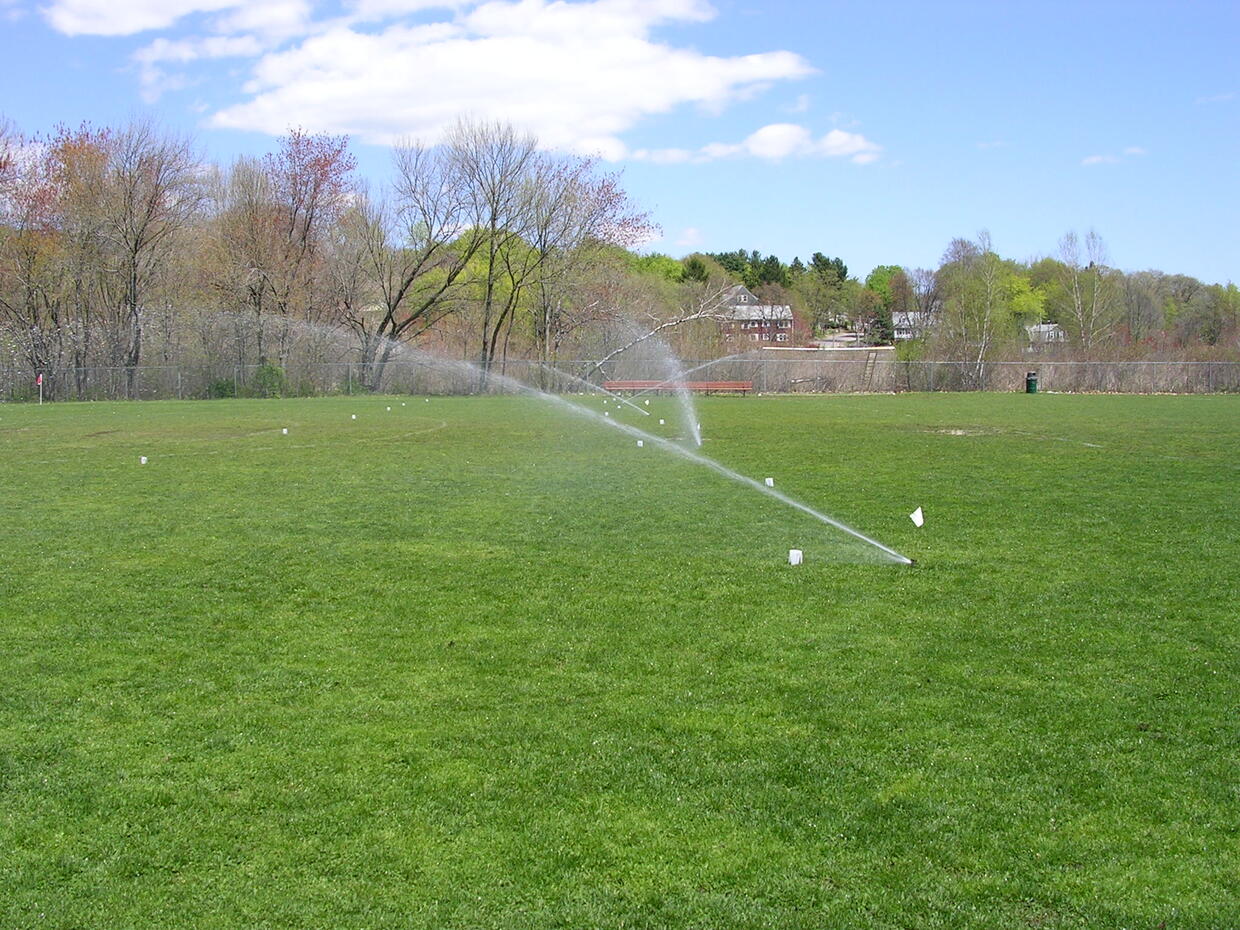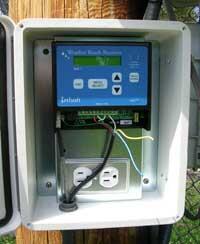Project Description
Location: Hamilton, Middleton, Peabody, North Reading, Reading
Purpose:
- Demonstrate the use of weather-based irrigation technology to reduce outdoor water use, while maintaining healthy landscapes.
- Reduce water demand on public water supplies in the Ipswich Watershed.
- Measure the water savings from the weather-based irrigation controllers, designed to deliver water only when needed.
Details: Twenty-five weather-based irrigation controller switches were installed on homes and athletic fields in five communities. These devices have an on-site rain gage and receive continuous wireless data on solar radiation, temperature, relative humidity, and wind. Using these data and specific device settings based on a landscape assessment, the system triggers an irrigation cycle only as needed. Until then, the device keeps the irrigation system in over-ride, preventing unnecessary watering. Fifteen homes in Reading and ten municipal athletic fields in Hamilton, Middleton, Peabody, North Reading, and Reading participated in this demonstration project.
Communication with project participants was an important part of this project. All residential participants were invited to attend season kick-off meetings in the spring of 2006 and 2007 to learn about the study and the low-flow problems facing the Ipswich River, discuss their newly-installed weather-based systems, and get information on data collection and system operation. A project close-out meeting was also held in April 2008 for participants to celebrate the end of the data collection, hear study results, give feedback on the systems, and get tips on eco-friendly landscaping. Interviews were also held with each of the five municipal partners in the spring of 2008 to present study results and get feedback on their experience with the weather based irrigation systems.
Equipment supply, installation, and maintenance: AquaSave LLC, Ipswich, MA
In-kind cooperation: Towns of Hamilton, Middleton, North Reading, and Reading and the city of Peabody
Monitoring and Analysis: DCR and Tufts University with oversight from a Technical Advisory Committee
Milestones
- Weather-based irrigation controllers were installed at both residential and municipal sites, May to August 2005
- Season kickoff meetings for participants, spring 2006 and 2007
- Monthly contacts with participants, April-October 2005, 2006, and 2007
- Project close-out meetings, spring 2008
Costs
Weather-based irrigation controllers (including the control unit, rain gauge, and installation) were valued at $962 each, at the time of installation.
Data Collection and Analysis
Water use by each irrigation system was recorded from dedicated water meters for each system. The project analyzed water savings for the participating homes in two ways. The first analysis compared outdoor water use between homes where weather-based controllers were installed and homes with similar irrigation systems but no controllers (the “control” group), before and after installing the weather-based controllers.
Secondly, a retrospective analysis compared each participating household’s actual outdoor water use in 2003 and 2004, before the weather-based controller was installed, to the simulated volume the weather-based controller would have applied during that same period. For this analysis, historic weather records were used, along with the settings for each individual system and the volume of water delivered with each irrigation cycle for each system.
To analyze water savings in the athletic fields, only the retrospective analysis was used, because there were not a sufficient number of fields available as a control group.
Key Results and Conclusions
-
The athletic field sites showed consistent reductions in water use with the weather based controllers, with an average savings of 36% or 120,000 gallons per acre per year.
-
The effect of the weather-based controllers on residential water-use patterns was more variable, with some participants decreasing water use after installation and others increasing.
-
Participants with the highest historical water use showed large and statistically significant water savings after installation.
-
Participants with relatively conservative watering habits initially tended to show an increase in water use after the weather based systems were installed.
-
-
The residential retrospective analysis had similar results, indicating that some participants would have saved water in 2003 and 2004 with the weather-based system, while others would have used more water with the weather-based system than they did without it.
-
For all participants, the weather-based systems appeared to save customers the most water during periods of wetter weather.

